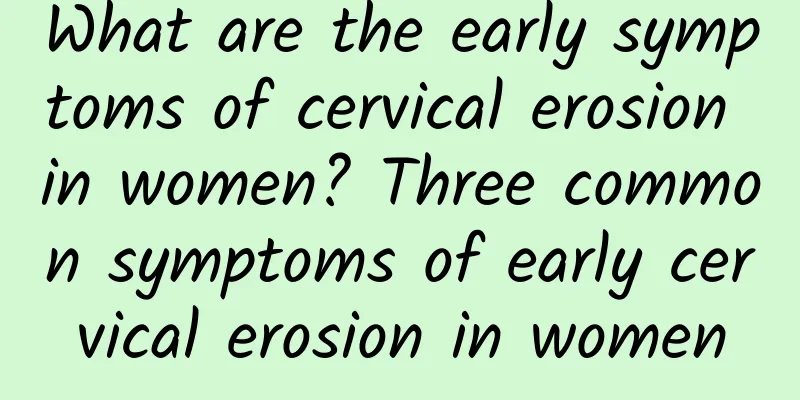What are the causes of miscarriage?

|
Abortion is a common obstetric disease. After a miscarriage, not only will the desired baby be lost, but the body of the pregnant mother will also be greatly harmed. In severe cases, it may even endanger her life. It is necessary for everyone to understand the causes of miscarriage. Everyone should take precautions in life to avoid misfortune caused by negligence. So, what are the causes of miscarriage? 1. Genetic Defects It accounts for about 5% of early miscarriages, 30% of mid- and late-term pregnancy, and 3% of stillbirths. Genetic defects mainly refer to chromosome defects in one or both spouses, which cause abnormal embryos to form when the egg splits or the sperm and egg combine, thus leading to miscarriage. If this happens, it is recommended that both spouses should undergo further chromosome analysis, and the miscarriage embryo should also undergo chromosome analysis. In another case, the chromosome abnormality of the embryo is accidental, that is, it has nothing to do with the parents. 2. Abnormal uterine structure This abnormality is one of the reasons for high miscarriage rates, including congenital double uterus, arcuate uterus, septate uterus or cervical weakness, or acquired cervical weakness, endometrial adhesions, uterine fibroids, adenomyoma, etc. General examination methods include ultrasound, traditional hysterosalpingography or magnetic resonance imaging. 3. Endocrine abnormalities These include thyroid disease, diabetes, polycystic ovary, and excessive prolactin or luteal insufficiency. Clinically, they can be diagnosed by simply taking a blood test for hormones. 4. Inflammation and infection If a woman has a filterable virus, bacteria, protozoa, parasite or fungal infection, she may easily suffer from miscarriage after pregnancy. Therefore, once the infection is confirmed, she must receive drug treatment. 5. Environmental factors The environmental factors referred to here are common smoking, drinking and excessive coffee; as for environmental toxins, they include exposure to heavy metals (such as mercury, silver) and anesthetic gases. Three or more consecutive miscarriages are considered habitual miscarriages. Habitual miscarriages seriously endanger women's health, are one of the main causes of infertility, and affect women's family happiness. However, habitual miscarriages can be easily confused with ordinary miscarriages. Therefore, if similar symptoms occur in daily life, you must go to a regular hospital for examination and treatment in time. |
<<: Professional knowledge on causes of miscarriage
>>: What are the causes of spontaneous abortion?
Recommend
What are the common symptoms of chronic adnexitis?
Since adnexitis is divided into acute and chronic...
What causes pelvic inflammatory disease in women
Female pelvic inflammation is mainly caused by in...
How should patients with dysmenorrhea be treated and nursed back to health?
Many women suffer from dysmenorrhea, so dysmenorr...
Learn more about the care of vulvar leukoplakia
Vulvar leukoplakia is very harmful to female comp...
What should I do if the abortion is not clean? What are the symptoms of an unclean abortion?
After an unexpected pregnancy, you can terminate ...
How to clean vaginal inflammation yourself
How to clean vaginitis yourself? There is no scie...
Analyze the early symptoms of cervicitis for you
Cervicitis is a major disease that many women are...
What is the reason why adnexitis easily enters the patient's life?
Nowadays, many women are troubled by adnexitis fo...
What is the normal age for women to enter menopause? It is about 45 to 55 years old
When women reach a certain age, their menstruatio...
What are the symptoms of irregular menstruation before pregnancy?
In modern society, many female friends suffer fro...
How to treat multiple uterine fibroids? How to treat multiple uterine fibroids?
Uterine fibroids are a common gynecological tumor...
The symptoms of irregular menstruation are mainly manifested in the amount of menstruation.
Menstruation is a problem that every woman has to...
How much do you know about the factors that cause cervicitis?
Cervicitis has many manifestations. The clinical ...
Introducing the common symptoms of multiple uterine fibroids
"What are the symptoms of multiple uterine f...
When can I wash my hair after an abortion? How many days after an abortion can I wash my hair?
Abortion is a common gynecological surgery used t...









